Magdalena Maria Kubas, Un contrappunto visivo-sonoro: l’anafora metrica e sintattica ne La Libellula rosselliana, „Quaderni del ‚900” 16 (2016).
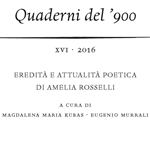

Magdalena Maria Kubas, Un contrappunto visivo-sonoro: l’anafora metrica e sintattica ne La Libellula rosselliana, „Quaderni del ‚900” 16 (2016).
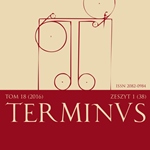
Anna Czarnowus, Litanic Tradition in Of on that is so fayr and bright and the Harley Ms Five Joys of Mary, „Terminus” 18 (2016), 1 (38). Artykuł omawia wpływ Litanii do Wszystkich Świętych na pieśni średnioangielskie na przykładzie Of on that is so fayr and bright (New Index nr 2645) oraz Five Joys of Mary w Poszycie Harleya […]
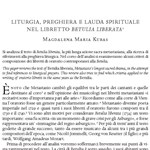
Magdalena Maria Kubas, Liturgia, preghiera e lauda spirituale nel libretto ‚Betulia liberata’, „Studi sul Settecento e l’Ottocento” 12 (2017).
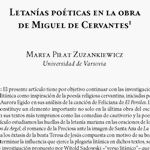
Marta Piłat-Zuzankiewicz, Letanías poéticas en la obra de Miguel de Cervantes [w:] En torno a Cervantes: Estudios sobre la época y la obra del autor del Quijote. Homenaje al Profesor Kazimierz Sabik, red. M. Piłat-Zuzankiewicz, Warszawa 2017. Artykuł kontynuuje badania nad modlitwą litanijną jako źródłem inspiracji dla poezji religijnej Cervantesa, które Patrizia Micozzi i Aurora Egido […]

Magdalena Kowalska, Litanies of a Name. The Holy Name of Jesus in the Sonnets of Anne de Marquets and Gabrielle de Coignard, „Journal of Academic Perspectives” 2017, nr 2.
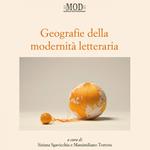
Magdalena Maria Kubas, «Io ti percorro»: gli spazi del misticismo di Alda Merini [w:] Geografie della modernità letteraria. Atti del XVII Convegno Internazionale della MOD 10-13 giugno 2015, red. Siriana Sgavicchia, Massimiliano Tortora, ETS, Pisa 2017, tom 1.
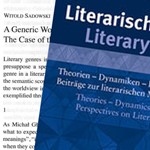
Witold Sadowski, A Generic Worldview. The Case of the Chrotonope of Litany [w:] Literarische Form: Theorien – Dynamiken – Kulturen. Beiträge zur literarischen Modellforschung, red. Robert Matthias Erdbeer, Florian Kläger, Klaus Stierstorfer, Universitätsverlag Winter, Heidelberg 2018. Gatunki literackie są nie tylko wyposażone w pewien potencjał znaczeniowy, lecz implikują także określony obraz świata. Chcąc rzeczywiście wziąć […]
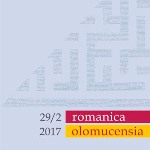
Magdalena Kowalska, Prière litanique – litanie poétique. Les paraphrases françaises jusqu’au xixe siècle, „Romanica Olomucensia” 29 (2017), nr 2. W artykule zostały zbadane: La letanie, pochodząca z brewiarza dla diecezji Evreux, parafraza Le pèlerinage de mariage, Paraphrase des Litanies de la Vierge Marie Martiala de Brives (1653), Litanies de la Sainte Vierge, ou de Lorette. […]
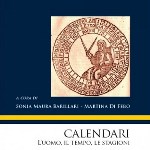
Magdalena Maria Kubas, «Al partire quest’anima dal corpo»: la sospensione del tempo nel laudario di Santa Maria della Morte di Bologna [w:] Calendari. L’uomo, il tempo, le stagioni, red. Sonia Maura Barillari, Martina Di Febo, Castel Negrino, Aicurzio 2018.
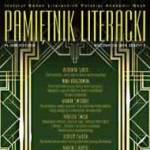
Witold Sadowski, Krótka historia „O!” (wokół utworu Julii Hartwig), „Pamiętnik Literacki” 109 (2018), z. 3. Artykuł przedstawia główne etapy ewolucyjne wykrzyknienia „O!” w poezji europejskiej od starożytności do współczesności. Pretekstem jest utwór Julii Hartwig O!, w którym „O” jest zarówno elementem inicjalnym tekstu właściwego, jak i jedynym słowem w tytule. Artykuł można też czytać odwrotnie: […]
PROJEKT BADAWCZY FINANSOWANY ZE ŚRODKÓW NARODOWEGO CENTRUM NAUKI
e-mail:
wiersz AT uw.edu.pl
Witold Sadowski
Instytut Literatury Polskiej
Uniwersytet Warszawski
ul. Krakowskie Przedmieście 26/28
00-927 Warszawa
tel./fax 22 55 21 020
This website uses cookies to improve your experience while you navigate through the website. Out of these cookies, the cookies that are categorized as necessary are stored on your browser as they are essential for the working of basic functionalities of the website. We also use third-party cookies that help us analyze and understand how you use this website. These cookies will be stored in your browser only with your consent. You also have the option to opt-out of these cookies. But opting out of some of these cookies may have an effect on your browsing experience.
Necessary cookies are absolutely essential for the website to function properly. This category only includes cookies that ensures basic functionalities and security features of the website. These cookies do not store any personal information.
Any cookies that may not be particularly necessary for the website to function and is used specifically to collect user personal data via analytics, ads, other embedded contents are termed as non-necessary cookies. It is mandatory to procure user consent prior to running these cookies on your website.